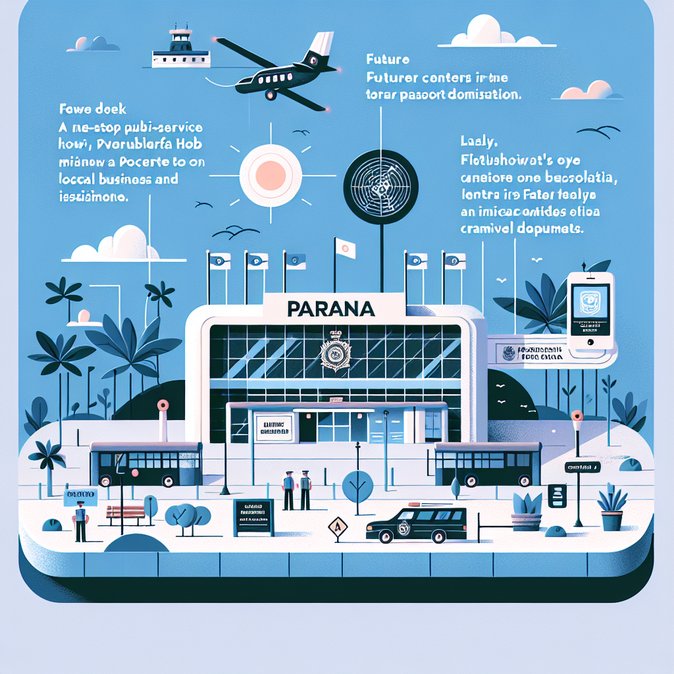
The state of Paraná inaugurated, on 31 October 2025, its second ‘Poupatempo Paraná’ one-stop service centre, located in Londrina’s Boulevard Shopping. Modelled on São Paulo’s award-winning programme, the hub concentrates more than 200 public-service desks—including identity cards, driver-licence renewal and business-registration assistance—in a single location with extended shopping-mall hours.
What makes the Londrina unit specifically relevant for global mobility professionals is the partnership being negotiated with the Federal Police (PF) to install a permanent passport-enrolment desk inside the facility. According to Leandro Moura, the state’s super-intendent of e-Government, the passport service should come online in early 2026, but training of staff and installation of biometric equipment are already under way.
The new centre also pilots an Android app that allows citizens to pre-schedule appointments, upload basic documentation and track application status—reducing in-person wait times. Businesses with travelling employees or expatriates in northern Paraná can streamline document renewals locally rather than sending staff to Curitiba or São Paulo.
The state plans to open 20 such centres by March 2026, with other locations—including Foz do Iguaçu, Cascavel and Ponta Grossa—of particular interest to companies near the Argentine and Paraguayan borders. Each hub will eventually host self-service kiosks for federal services tied to the gov.br portal, aligning with Brazil’s broader digital-government strategy and easing future roll-outs of electronic visas.
Although the passport counters are not yet operational, mobility managers may wish to map forthcoming sites to anticipate reduced travel time and cost for document processing, especially if planned PF budget constraints materialise later this year.
What makes the Londrina unit specifically relevant for global mobility professionals is the partnership being negotiated with the Federal Police (PF) to install a permanent passport-enrolment desk inside the facility. According to Leandro Moura, the state’s super-intendent of e-Government, the passport service should come online in early 2026, but training of staff and installation of biometric equipment are already under way.
The new centre also pilots an Android app that allows citizens to pre-schedule appointments, upload basic documentation and track application status—reducing in-person wait times. Businesses with travelling employees or expatriates in northern Paraná can streamline document renewals locally rather than sending staff to Curitiba or São Paulo.
The state plans to open 20 such centres by March 2026, with other locations—including Foz do Iguaçu, Cascavel and Ponta Grossa—of particular interest to companies near the Argentine and Paraguayan borders. Each hub will eventually host self-service kiosks for federal services tied to the gov.br portal, aligning with Brazil’s broader digital-government strategy and easing future roll-outs of electronic visas.
Although the passport counters are not yet operational, mobility managers may wish to map forthcoming sites to anticipate reduced travel time and cost for document processing, especially if planned PF budget constraints materialise later this year.









